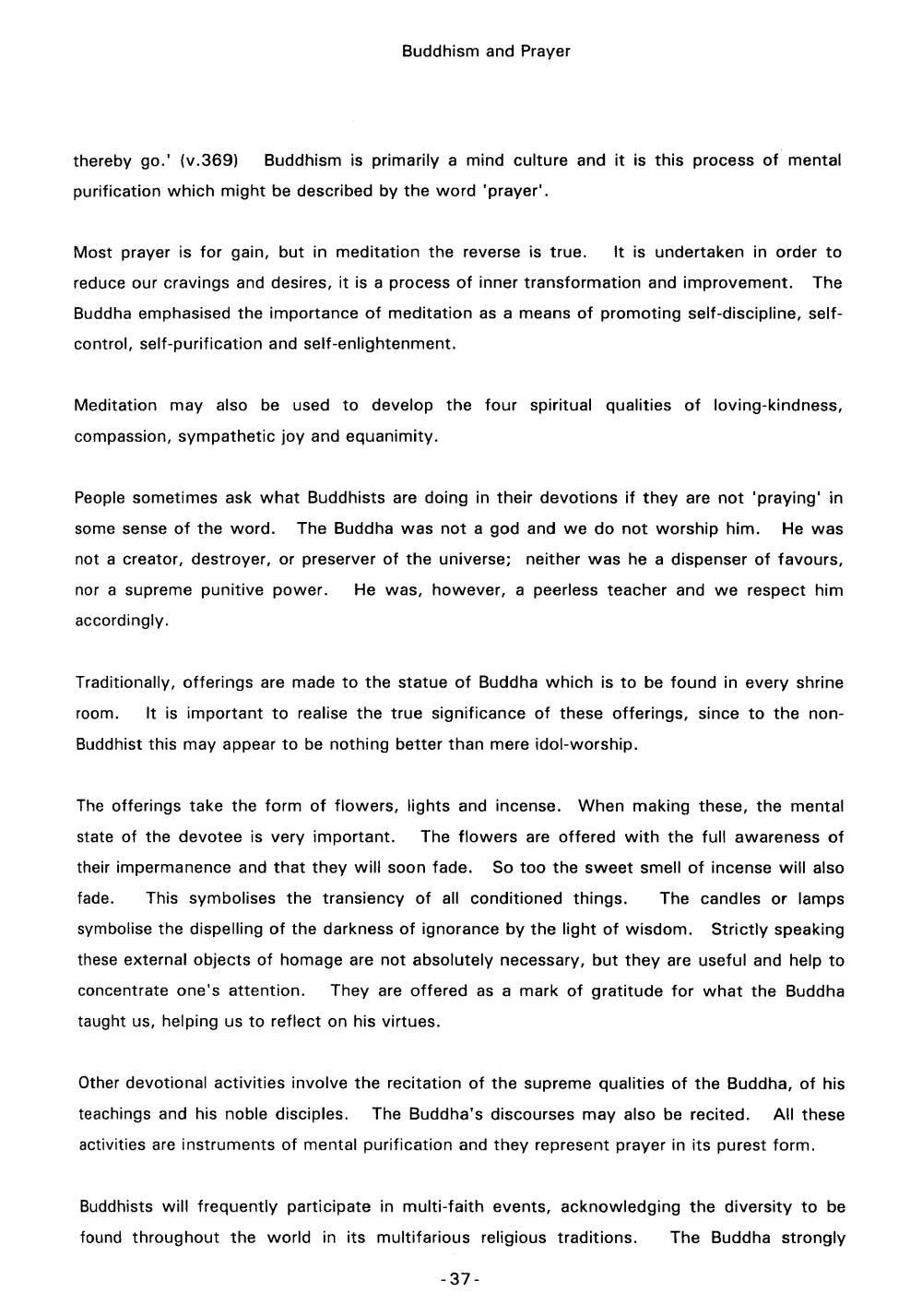________________
Buddhism and Prayer
thereby go.' (v.369) Buddhism is primarily a mind culture and it is this process of mental purification which might be described by the word 'prayer'.
Most prayer is for gain, but in meditation the reverse is true. It is undertaken in order to reduce our cravings and desires, it is a process of inner transformation and improvement. The Buddha emphasised the importance of meditation as a means of promoting self-discipline, selfcontrol, self-purification and self-enlightenment.
Meditation may also be used to develop the four spiritual qualities of loving-kindness, compassion, sympathetic joy and equanimity.
People sometimes ask what Buddhists are doing in their devotions if they are not 'praying' in some sense of the word. The Buddha was not a god and we do not worship him. He was not a creator, destroyer, or preserver of the universe; neither was he a dispenser of favours, nor a supreme punitive power. He was, however, a peerless teacher and we respect him
accordingly.
Traditionally, offerings are made to the statue of Buddha which is to be found in every shrine room. It is important to realise the true significance of these offerings, since to the nonBuddhist this may appear to be nothing better than mere idol-worship.
The offerings take the form of flowers, lights and incense. When making these, the mental state of the devotee is very important. The flowers are offered with the full awareness of their impermanence and that they will soon fade. So too the sweet smell of incense will also fade. This symbolises the transiency of all conditioned things. The candles or lamps symbolise the dispelling of the darkness of ignorance by the light of wisdom. Strictly speaking these external objects of homage are not absolutely necessary, but they are useful and help to concentrate one's attention. They are offered as a mark of gratitude for what the Buddha taught us, helping us to reflect on his virtues.
Other devotional activities involve the recitation of the supreme qualities of the Buddha, of his teachings and his noble disciples. The Buddha's discourses may also be recited. All these activities are instruments of mental purification and they represent prayer in its purest form.
Buddhists will frequently participate in multi-faith events, acknowledging the diversity to be found throughout the world in its multifarious religious traditions. The Buddha strongly
- 37 -




